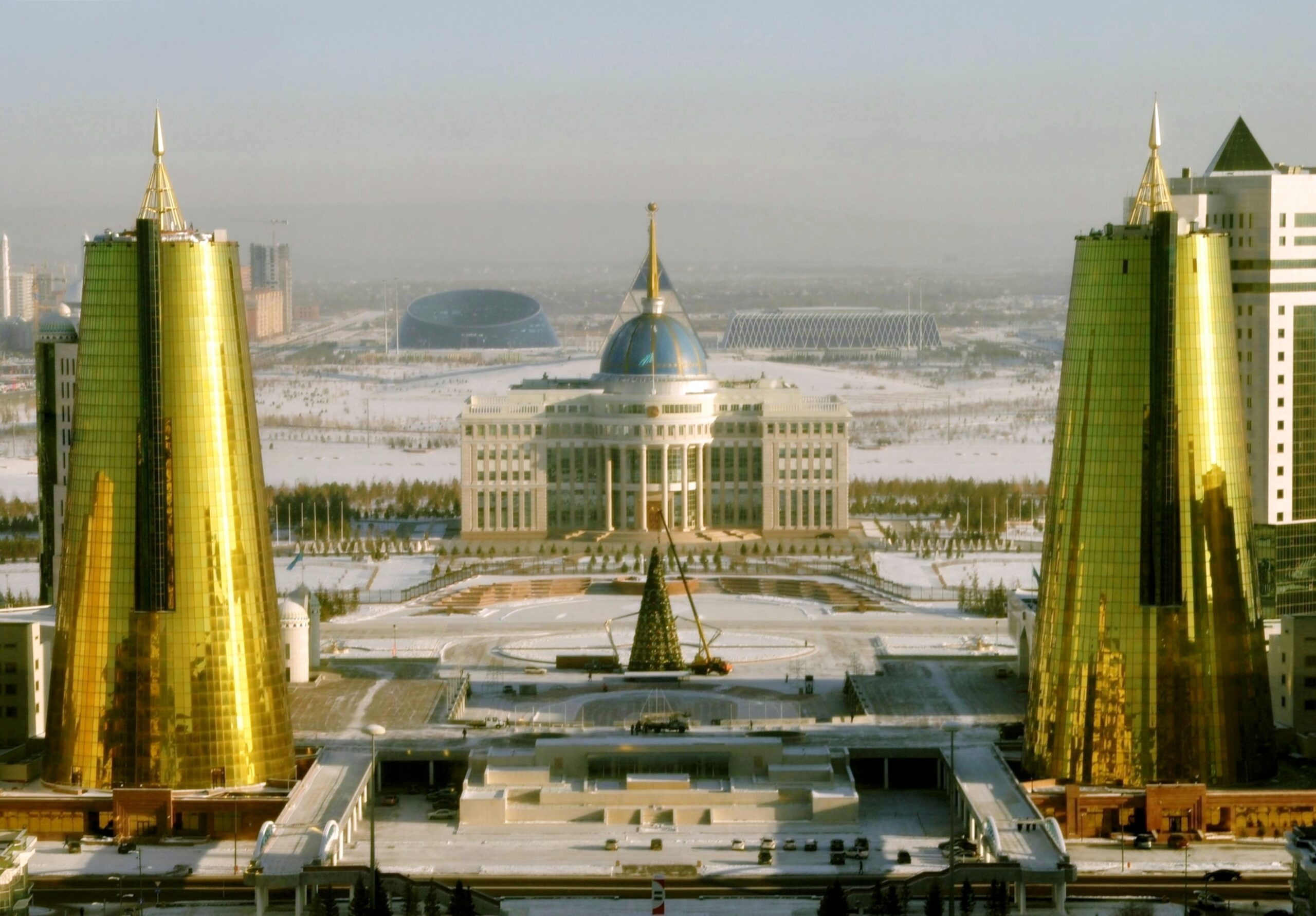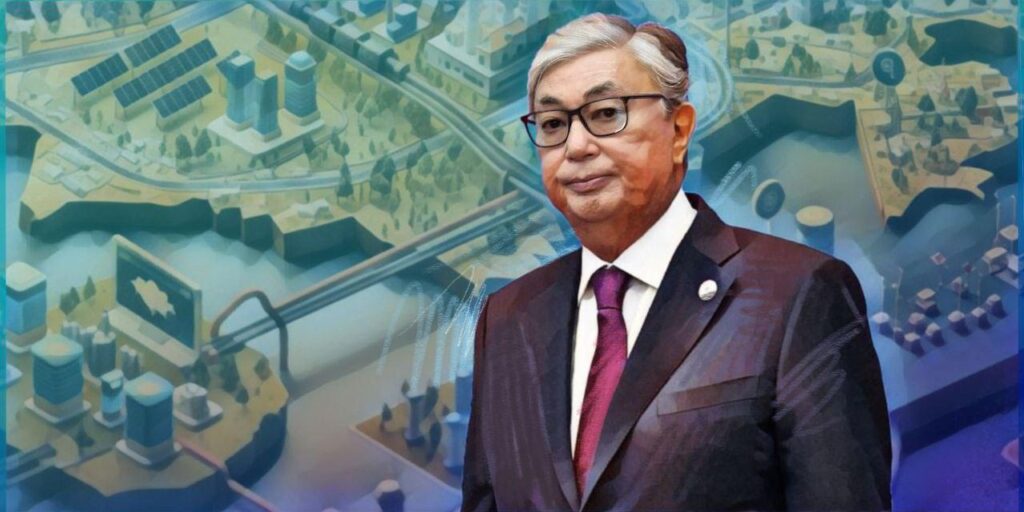Democracy in Central Asia is evolving since the Soviet Union’s collapse three decades ago. Despite a history of authoritarianism, the region is showing signs of human rights improvement and increased democratic representation. New voices are emerging, impacting societal change. It’s crucial to recognize this progress while still addressing human rights issues and advocating for further democratic reforms.
On December 10, 2023, the world celebrated the 75th anniversary of the Universal Declaration of Human Rights (UDHR), a g seminal document that established the universal recognition of fundamental human rights. The anniversary was marked by various events and initiatives around the globe, including a significant event in Geneva. In line with this celebration, the U.S. Secretary of State Anthony Blinken announced the designation of Taliban leaders connected to restrictions on access to secondary education for women.
President Kassym Jomart Tokayev of Kazakhstan also demonstrated his country’s commitment to upholding human rights by signing a decree titled “On Further Measures of the Republic of Kazakhstan”. This statute underlines Kazakhstan’s commitment to implementing democratic reforms and integrating them into everyday public life.
The Decree aligns the nation’s democratic and human rights mechanisms with international standards, encouraging cooperation between the state, the United Nations (UN), and the Organization for Security and Cooperation in Europe (OSCE). It has initiated practical measures like expert-led training sessions from the UN and OSCE to implement regional political reforms. Additionally, the Decree’s Action Plan details the executive, legislative, and judicial branches’ the execution of reforms in collaboration with civil society and the international community with the ultimate aim of upholding the rule of law and human rights. These initiatives are consistent with President Tokayev’s promise to build a “Just and Fair Kazakhstan” that will protect marginalized groups, support union activities, uphold assembly rights, and prevent violence and torture.
Building gender equality
Women’s rights have become a focal point globally. Kazakhstan, with its nomadic heritage, has made significant strides in narrowing the gender gap compared to many other countries. Since joining the UN’s Human Rights Council for the 2022-2024 term, the country has prioritized gender equality and women’s empowerment. Kazakhstan recently moved up 15 positions in the “Global Gender Gap” index due to successful reforms in the field of gender development where it is ranked 65 out of 146 countries.
The recent Decree fundamentally strengthens gender equality. The Government is instructed to take systematic measures to promote equal rights and opportunities in all spheres of society, as well as to overcome all forms and manifestations of gender discrimination. The decree also encompasses legislation to deter domestic violence and promotes equal rights and safety for both men and women in the Republic of Kazakhstan, as endorsed by UN Security Council resolution 13251. This is a significant step forward in addressing gender-based violence and discrimination, reflecting the government’s commitment to promoting human rights and gender equality.
Combatting domestic violence
A recent, and very public, tragedy in Kazakhstan represented domestic violence at its worst. To combat domestic violence effectively, it is essential to create a legal culture that promotes zero tolerance towards all forms of violent offenders. Women and children are the most vulnerable in such situations, and it is crucial to prioritize their safety and well-being.
The Decree involves legislative measures that have now been implemented to tighten criminal liability in cases of domestic violence. These measures aim to hold perpetrators accountable for their actions and ensure that victims can get justice. Additionally, offenders of domestic violence may be required to undergo comprehensive psychological correction as part of their rehabilitation process.
Best practices show that involving female employees by the authorities in this process can bring a unique perspective and sensitivity to domestic violence cases. The Decree involves creating specialized units within the Ministry of Internal Affairs staffed with female officers, who can enhance the effectiveness of combating domestic violence. These units will provide support to victims while working towards achieving justice.
Protecting those detained and convicted
President Tokayev’s constitutional reform package, approved through a referendum on June 5, 2022, has already significantly enhanced Kazakhstan’s stance on preventing torture and ill-treatment. This reform aligns the nation’s criminal justice system more closely with international obligations.
The recent presidential Decree further compels the government to implement additional measures. These involve improving regulations to abolish torture and ill-treatment of inmates as well as ensuring thorough investigation, prosecution, and punishment of such acts. The objective of these initiatives is to systematically eradicate torture, bolster human rights protection, increase public confidence in law enforcement agencies, and secure public backing for addressing issues within the criminal justice system.
The Action Plan improves the occupation prospects for convicts through quality vocational education, fostering a sense of social significance through rewarding work, thereby facilitating their productive re-entry into society. In accordance with this Decree, the Ministry of Internal Affairs is tasked with upgrading workshops in penal institutions and updating vocational training courses based on labor market demand, with the support of international organizations and businesses. Incentives are given to small and medium-sized businesses employing convicts. Moreover, the government will initiate pilot projects for the reintegration of ex-convicts into society, involving UN and OSCE institutions.
Right to freedom of association
While the existing legislation in the Republic of Kazakhstan concerning the organization and execution of peaceful assemblies is in alignment with internationally accepted norms and practices, future amendments to this legislation can be made with due consideration to both domestic law application and international experiences.
The Action Plan incorporates measures intended to uphold the freedom of peaceful assembly. These include managing interdepartmental collaboration, formulating methodical recommendations, and conducting training seminars in partnership with global institutions such as the United Nations (UN) and the Organization for Security and Co-operation in Europe (OSCE). Collectively, these actions empower every citizen to actively exercise their right to freedom of assembly.
Protecting rights of children and persons with disabilities
The Decree aims to bolster protection of children’s rights in Kazakhstan. It proposes legislative changes to establish regional children’s rights commissioners who will cooperate with the national Commissioner for Children’s Rights.
Kazakhstan also places significant emphasis on supporting individuals with disabilities, striving to involve them in decision-making processes. The government has been directed to adopt a dedicated Concept of Inclusive Policy for the Republic of Kazakhstan, set to be implemented by 2030, demonstrating their commitment to inclusivity in the coming years.
Steps to ensure right to work, labor protection and activities of trade unions
Kazakhstan is proactively adopting legislative and practical steps to safeguard human rights, with a particular focus on preventing industrial accidents. The urgency for enhanced labor protection laws in the country has been highlighted by recent incidents.
The Action Plan that has been adopted is geared towards enhancing legal requirements for safe working conditions. The government is on track to approve the Concept of Safe Work in the Republic of Kazakhstan, projected to be in effect until 2030.
Kazakhstan will commence an in-depth study of the UN Guiding Principles on Business and Human Rights’ implementation. This signals the country’s commitment to advancing workplace safety and upholding labor rights.
Conclusion
In conclusion, the signing of the Decree by President Tokayev marks a significant step in Kazakhstan’s journey towards bolstering human rights for all citizens, particularly for vulnerable groups such as women, children, the disabled and convicts while protecting the right of the people to peacefully assemble and improving conditions for the country’s workers. This initiative not only underscores the government’s commitment to preventing industrial accidents but also aligns its laws and regulations with international standards set by the UN Guiding Principles on Business and Human Rights. As a key player in Central Asia, these actions could potentially influence other nations in the region to follow suit, thereby contributing to a broader enhancement of human rights across the region.









